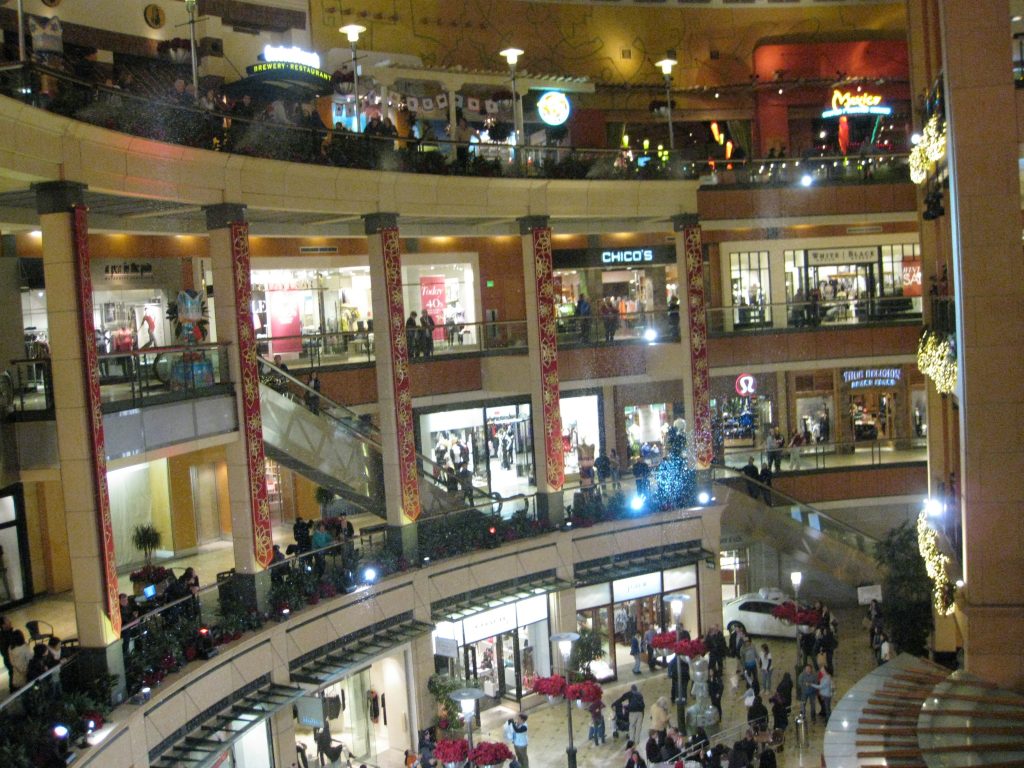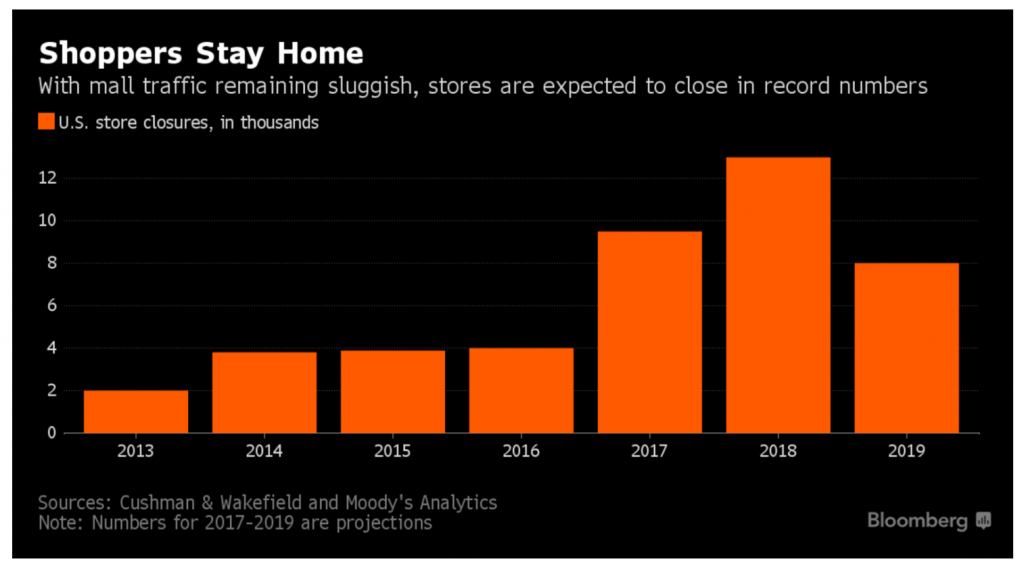 USA Meg Mall in Seattle, WA (Source: Bynyalcin @Wikicommons)
USA Meg Mall in Seattle, WA (Source: Bynyalcin @Wikicommons)
Traditional U.S. retailers are staring out at the abyss with massive layoffs expected to continue into the next quarter of 2017, according to a report by MarketWatch. In the last four years, traditional retailers have cut more than 200,000 jobs.
In contrast, Amazon is set to create 100,000 new full-time jobs over the year in the US.
In the early days of Amazon.com the online retailer struggled to turn a profit. Inc. Magazine explains:
“Despite having revenues of $1.6 billion in 1999, Amazon still managed to lose $719 million. Things didn’t get better in 2000, when it was found that Amazon had just around “$350 million of cash on hand,” despite raising billions of dollars.
Traditional shopping malls and retailers simply cannot match the lower overhead Amazon business model. The difference between running a warehouse-based infrastructure and a fully operational, brick and mortar venue is pretty obvious – the costs in building and maintaining large bespoke spaces which require 24/7 maintenance and costly renovations, repairs, remodeling.
Bloomberg reports:
“The owner of the Newgate Mall plans to pour $500,000 into overhauling the outdated food court in a bid to lure restaurateurs and hungry shoppers. Rent payments from eateries are never going to recoup the renovation costs, but for landlord Time Equities Inc., that’s not the point. The point is survival.”
“Costs are escalating as mall owners work to keep their real estate up to date and fill the void left by failing stores. The companies are turning to everything from restaurants and bars to mini-golf courses and rock-climbing gyms to draw in customers who appear more interested in being entertained during a trip to the mall than they are in buying clothes and electronics. The new tenants will pay higher rents than struggling chains such as Macy’s and Sears, and hopefully attract more traffic for retailers at the property, according to Haendel St. Juste, an analyst at Mizuho Securities USA LLC.”

“More than a dozen retailers have gone bankrupt this year as the shift toward online shopping accelerates. Even healthy companies are shutting hundreds of locations. As many as 13,000 stores are forecast to close next year, compared with 4,000 in 2016, according to brokerage Cushman & Wakefield Inc.”
Are we looking at a new commercial property bubble forming here – as the late 20th century shopping model struggles to remain relevant? St. Juste certainly thinks so:
“The math is pretty obvious, pretty compelling, but there are risks,” St. Juste said in an interview. “This hasn’t been done before on a broad scale.”
With so many traditional retailers failing to compete with Amazon, it’s only a mater of time before there’s an over-supply of commercial retail property on the market, leading to an inevitable drop in the price per square foot. How long until Amazon moves in and buys-up large retail properties on the cheap, and rolls-out Amazon’s new brick and mortar digital shopping experience?
READ MORE FINANCIAL NEWS AT: 21st Century Wire Financial Files
SUPPORT OUR WORK BY SUBSCRIBING & BECOMING A MEMBER @21WIRE.TV















